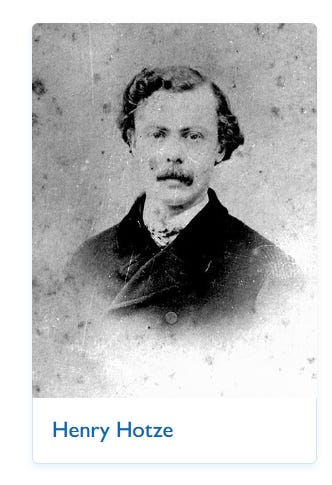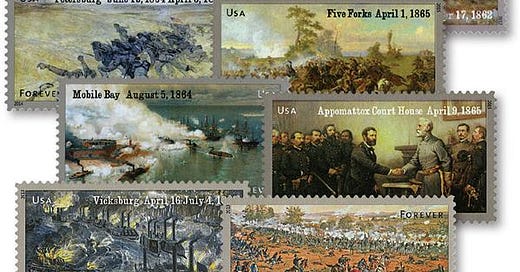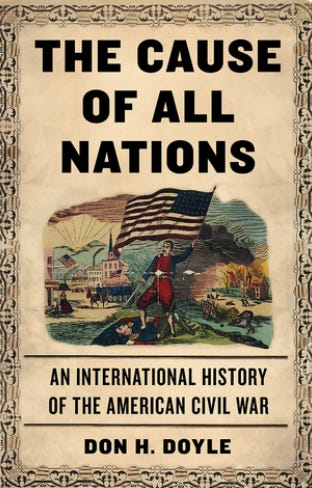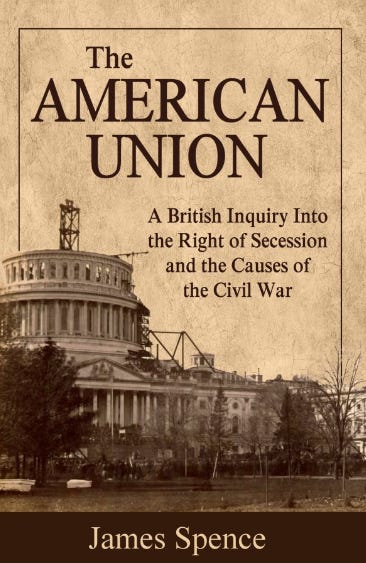Observation 1 about Don H. Doyle's The Cause of All Nations: An International History of the American Civil War
The Abuse of Science in the American Civil War
In an attempt to gain international military support, international commercial relationships, and international recognition as an independent country, the Confederates launched a political messaging campaign in Europe. What I find striking about their messaging campaign is that Confederates spoke as if they were modern day Liberals in Canada or modern day Democrats in the United States. The key point of similarity is that Confederates spoke and modern day Liberals and Democrats speak in terms of “the settled science.” This is my first observation concerning Don H. Doyle’s book The Cause of All Nations: An International History of the American Civil War.
Today, of course, the phrase “the science is settled” is ubiquitous. It was used heavily during COVID-19 to push one and only one particular pandemic response (mandatory masking, lockdowns, forced vaccinations and so on), and it was certainly used to silence all alternative voices who suggested alternative pandemic responses. The phrase is also used to push carbon taxes and the mandatory adoption of electric vehicles. It is a phrase that is used to silence dissent and to end all debate. In other words, it is a very authoritarian way of dealing with people. It is like a nice and polite way of saying “sit down, shut up, and do as you are told!” Finally, it is a phrase used in a condescending fashion because it implies that Liberals and Democrats are smart and educated “followers of science,” but their Conservative and Libertarian opponents are stupid and uneducated morons following “misinformation” and “conspiracy theories.”
I don’t like it when people use “the science is settled” phrase and the “follow the science” phrase because bad ideas have been sold to the public using this approach in the past. This is my main point. The Confederates claimed that “the science was settled” concerning the issues of white supremacy and slavery. According to them, if you want to be on the side of science, then you must be a defender of slavery and white supremacy. Here are two examples of the Confederate way of thinking about “the settled science” taken from Don H. Doyle’s book.
James Spence was a Liverpool businessman who eagerly volunteered to help the Southern cause. One of his biggest contributions to assisting the South was when he authored the American Union. Spence
addressed the slavery question with a boldness few Confederate envoys would have dared. In the South, he insisted, slaves received benign treatment, their “animal comforts” comparing favorably to the “suffering and hardship” of “many classes of European labour.” “In Europe a man must work, or starve; there is the compulsion of necessity.” Spence waded without hesitation into current anthropological theory on the inequalities among human races and argued his case for the “radical inferiority” of Negro “mental power.” Armed with Arthur Gobineau’s scientific racial theory, Spence ridiculed the whole notion of equality among human races as weak-minded nonsense propagated by sentimental philanthropists.1
The Confederates also sent Henry Hotze to Europe to sell their Southern cause partially because he could communicate in English, German, and French and partially because he had diplomatic experience. Hotze also pounced at the opportunity to defend slavery and white supremacy in the name of science:
In Gobineau Hotze discovered a wealth of ideas for his defense of the Confederacy in Europe. Gobineau’s powerful critique of egalitarian democracy and liberal philanthropic sentimentality, together with his “scientific” argument for white supremacy, allowed Hotze to present the South not as a rearguard defender of barbaric slavery, but as a scientifically sound model of white supremacy for the new age of imperialism.2

As a Canadian, I am not sure how I am supposed to respond to these Confederate arguments. The “follow the science” or “listen to the science” mentality forces me to adopt the Confederate position. They spoke in the name of science, so I must submit to all of their arguments. If I resist their scientific arguments, then I am a “science denier” and deserve to be punished for my intransigence. Doing my own research is also something frowned upon because then I might be exposed to all sorts of “misinformation” and “disinformation.” The only viable option open to me, I guess, is to go ask the government and let them tell me, either directly through some official communication or indirectly through their subsidized media friends, what I should think. I am sure that I will be told that the Confederate version of “the settled science” is wrong, and that I am a victim of “misinformation” and “disinformation” because I read from a non-approved book. Thankfully, the government and their media friends will supply me with the “correct” version of the “settled science” so that I will be a “correct” thinker holding the “correct” views on all issues. Perhaps, just to be safe, the government should take all of my Civil War books from me because they are full of all sorts of dangerous ideas, and, as a replacement, the government should give me a free lifetime subscription to the Toronto Star (or some other government approved publication)!
Don H. Doyle, The Cause of All Nations: An International History of the American Civil War (New York: Basic Books, 2016), 144.
Doyle, Cause of All Nations, 192.





